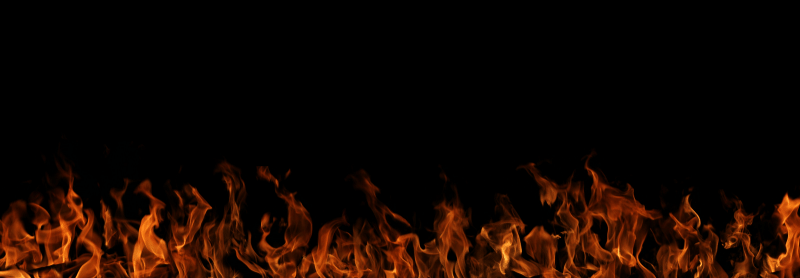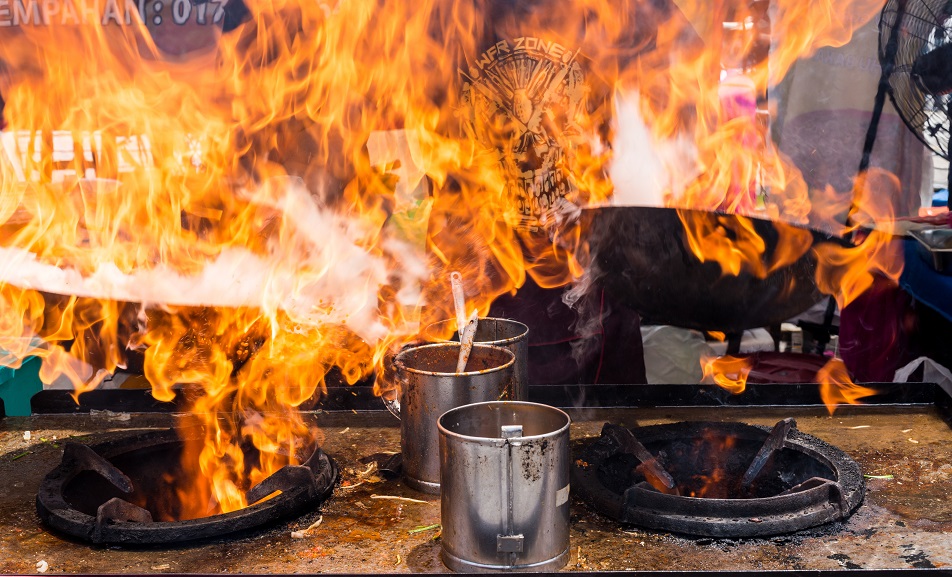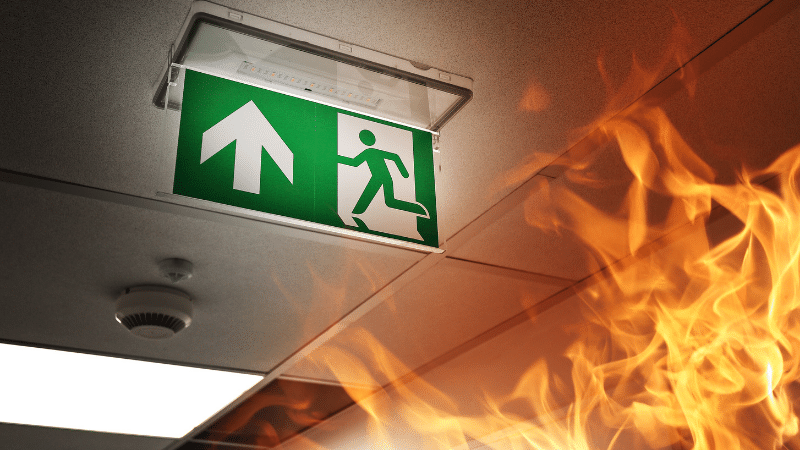No one expects a fire to break out in their business property. When it does, the owners are thrust into what is often a traumatic experience. Most commercial fires in buildings occur in the kitchen where cooking fuels such as gas and oil are used, but some occur because of faulty equipment and wiring. Regardless of the cause, these fires can damage or destroy a building, inventory, equipment and most importantly records that may be housed with the business. In addition to these tangible losses, employees working in the building at the time of the blaze might be severely injured or killed.
Commercial fires are so commonplace that business owners are advised to prioritize fire protection. Understanding and mitigating the risks is one important step in dealing with a property fire. Here are additional steps to take in the aftermath of a fire in a business property.
What causes fires in a business property?
The National Fire Protection Agency (NFPA) reports that certain causes of fire are more frequent than others. The top five causes of a commercial property fire are cooking equipment, heating equipment, lighting and other electrical equipment, smoking materials, and arson (intentional fire setting).
Cooking fires may seem rare in businesses; however, consider that restaurants typically cook over open flames, use grease and oils, and produce smoke. Although 61 percent of cooking fires occur in restaurants, 65 percent of these types of fires happen in healthcare facilities.
Mechanical equipment, such as furnaces, boilers, and radiators, in commercial buildings are prone to overheating and sparking a flame. In fact, heating equipment is responsible for 14 percent of fires in industrial properties, 11 percent in office buildings, and 5 percent in healthcare facilities.
Electrical wires wind through commercial buildings. Worn or damaged wires are fire hazards, as are loose connections, overloaded circuits, and faulty fuses. Lighting problems can ignite a fire. Twelve percent of these fires occur in office buildings and 10 percent in stores.
Despite the rate of smoking decreasing in recent years, lighted cigars, cigarettes, or other smoking materials can start a fire. Smoking materials are among the top five causes of commercial property fires, with 9 percent of them occurring in office buildings.
Arson, which is defined as the deliberate and malicious misuse of a heat source, is the final top cause of fires in businesses. Intentional fire-setting occurs in places, like schools (at 36 percent), office buildings (at 10 percent), healthcare facilities (at 6 percent), and restaurants (at 4 percent).

1. Notify the insurance company
After a fire occurs inside a commercial building and the fire officials have suppressed the flames, the owner must notify their insurer within a reasonable time and report the losses. An important step is to document the call, keeping track of all individuals contacted.
Be prepared to give the insurer the date and time the damage occurred, a completed fire report as well as any documentation regarding the extent of damages and necessary repairs. Collect receipts to document expenses incurred during the recovery period.
2. Prevent further damage
In order to prevent the insurer from denying coverage for additional damages, business owners should mitigate their losses by protecting the fire damaged building. Tarp holes in the roof to prevent leaks, turn off the water mains in cold weather, and install security fencing around the building.
3. Secure the fire-damaged building
Sufficient security is critical, as empty buildings are often targets for vandals and other criminals. Request that the local police perform extra patrols while the property is vacant. Also arrange for private security to protect the property, since law enforcement officials are limited in their capabilities.
4. Hire a public adjuster
A mistake business owners make is assuming the insurer will take care of the details related to the loss. Rather than rely on insurers with competing interests, property owners should hire a public adjuster for guidance through the claims process and request building codes from building department inspectors.
5. Disconnect utilities
The plumbing, electrical wires and utility lines are affected when a fire strikes. After the fire, turn off the gas, electricity, and water lines to the building. City services may be contacted in the event the business owner is hesitant about safely turning these off.
6. Professionally inspect the building
Even once the clear has been given by fire officials, the property owner is advised to hire professional technicians to inspect the connections before turning on the gas, electricity, and water. Similarly, bring in fire damage professionals to assess the structural integrity of the walls, floors, and ceilings.
7. Gather valuables
Once the fire officials declare the building is safe to enter, retrieve valuables, such as insurance policies, business licenses, employee documents, and inventory records. Be cautious while rummaging through the buildings since fire safes can explode immediately after a fire or cause an ignition of their contents.
8. Stay calm
Staying calm throughout this catastrophic disaster is advised in order to prevent bad decision-making. Naturally, a business owner fears halting operations or feels the urgency to reopen. But larger financial losses are likely if the owner makes repairs at his expense or fails to rebuild correctly.
Dealing with a fire in a business is stressful. Ideally, however, business owners will have developed a contingency plan well before the fire. A list of important information, from contact lists to accounting records, should be kept in a separate, offsite location so that the information is not destroyed.

Also kept with the important business records is the contact information for a reputable fire damage restoration company, such as ServiceMaster by Replacements. We are a locally based company with a crew of smoke damage restoration technicians who can respond to your emergency right away.
Using advanced fire damage restoration techniques, cleaning solutions and equipment, our IICRC certified technicians are able to restore a range of items that have been damaged by soot or smoke. In addition to soot removal and content cleaning, we provide thorough deodorization of the property.
Stabilizing the fire damaged building is important to avoid collapse, and our techs provide this critical service. We employ skilled crews who perform structural repairs. If any damaged items are permanently destroyed, our technicians remove the items and other debris from the property.
When a fire destroys your home or business, do not delay contacting ServiceMaster by Replacements. Our crews are available to respond 24 hours a day to fire damage emergencies. We are proud to serve the fire damage cleanup needs of property owners in New Jersey. Call today at (732) 842-6917 for reliable restoration.







